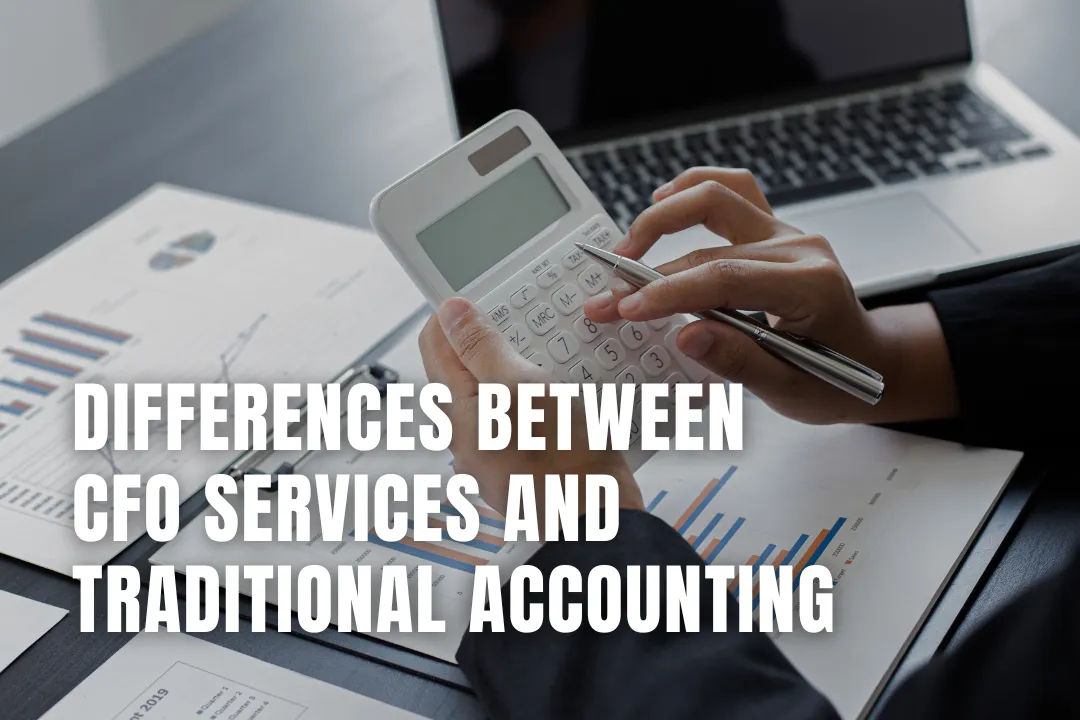
When it comes to managing a company’s finances, business owners often find themselves navigating the world of numbers, regulations, and strategic decisions. Two key financial functions that frequently come up are CFO services and traditional accounting. Although these terms might sometimes be used interchangeably, they serve very different purposes and deliver unique value to a business. Understanding the differences between CFO services and traditional accounting is important for companies seeking to optimize their financial health and growth potential. In this blog post, we’ll explore these distinctions in depth to help you decide which financial support is best suited to your business needs.

One of the most fundamental differences between CFO services and traditional accounting lies in their scope of responsibility. Traditional accounting primarily focuses on the accurate recording, organizing, and reporting of financial transactions. Accountants ensure that all financial data complies with regulatory standards, manage bookkeeping, and prepare financial statements such as balance sheets, income statements, and cash flow reports. Their role is centered on the past and present financial data, providing a clear and accurate picture of where the business stands financially.
CFO services encompass a much broader, strategic role. A Chief Financial Officer is not just a number cruncher but a financial leader who guides the company’s financial planning, risk management, and long-term growth strategies.
When evaluating financial support options, cost plays a crucial role, relative to a company’s stage of growth. Small businesses and startups often prioritize traditional accounting due to its affordability and important focus on compliance and bookkeeping. As a business expands and its financial needs become more complex, the value of strategic financial guidance increases. Many growing companies turn to outsourced CFO services, which provide expert leadership without the full expense of an in-house executive. This middle ground allows businesses to access advanced financial planning and analysis tailored to their evolving challenges. Selecting between accounting and CFO services depends on balancing budget constraints with the company’s maturity and financial complexity.
Traditional accounting is deeply rooted in compliance and reporting. Accountants maintain the company’s books and records to satisfy tax authorities, auditors, and other regulatory bodies. They ensure that financial reports are prepared according to generally accepted accounting principles (GAAP) or international financial reporting standards (IFRS). This function is critical for maintaining transparency, meeting legal obligations, and providing stakeholders with trustworthy financial information.
CFO services focus on financial strategy and business growth. A CFO uses financial insights to create budgets, set financial targets, and assess performance metrics beyond basic accounting data. They advise leadership on cost control, pricing strategies, funding options, mergers and acquisitions, and operational efficiencies.
Traditional accounting is largely transactional and reactive by nature. Accountants record transactions as they occur, reconcile accounts, and prepare end-of-period reports. Their work often revolves around maintaining the accuracy of financial records and resolving discrepancies after they arise. While accountants can provide valuable historical analysis, their role typically does not extend into actively shaping the financial future of the business.
CFO services are characterized by proactive financial leadership. CFOs anticipate financial challenges and opportunities, offering proactive guidance to navigate changing market conditions or economic climates. They lead scenario planning, cash flow forecasting, and capital allocation strategies to ensure the company is financially resilient.
Technology primarily serves to automate bookkeeping tasks and streamline compliance reporting. Accounting software helps accountants manage payroll, invoicing, tax filings, and financial reconciliations efficiently. The focus remains on ensuring that all financial records are accurate and audit-ready, not necessarily on generating dynamic insights or predictive analytics.
CFO services, by contrast, leverage advanced financial technologies and business intelligence tools to deliver sophisticated financial analysis and reporting. CFOs utilize dashboards, data visualization, and forecasting models to monitor key performance indicators (KPIs) in real-time and simulate different business scenarios.
The most significant difference between CFO services and traditional accounting lies in their impact on business decision-making. Traditional accounting provides a solid foundation of accurate financial data necessary for day-to-day operations and legal compliance. Without this foundation, it would be difficult for any business to function or grow responsibly.
CFO services build on this foundation by transforming financial data into strategic insights that influence critical business decisions. From capital investments to market expansion, pricing, and risk management, CFOs help leaders make informed choices that can drive profitability and sustainable growth.

While traditional accounting and CFO services play vital roles in a company’s financial ecosystem, they serve very different functions. Accounting ensures accuracy, compliance, and clarity in financial reporting, forming the crucial groundwork for any business. CFO services elevate financial management to a strategic level, providing leadership with forward-looking insights and guidance to support growth and resilience. By understanding these differences, business owners can make smarter decisions about what kind of financial expertise they need, whether it’s managing the books meticulously or steering the company’s financial future with confidence.